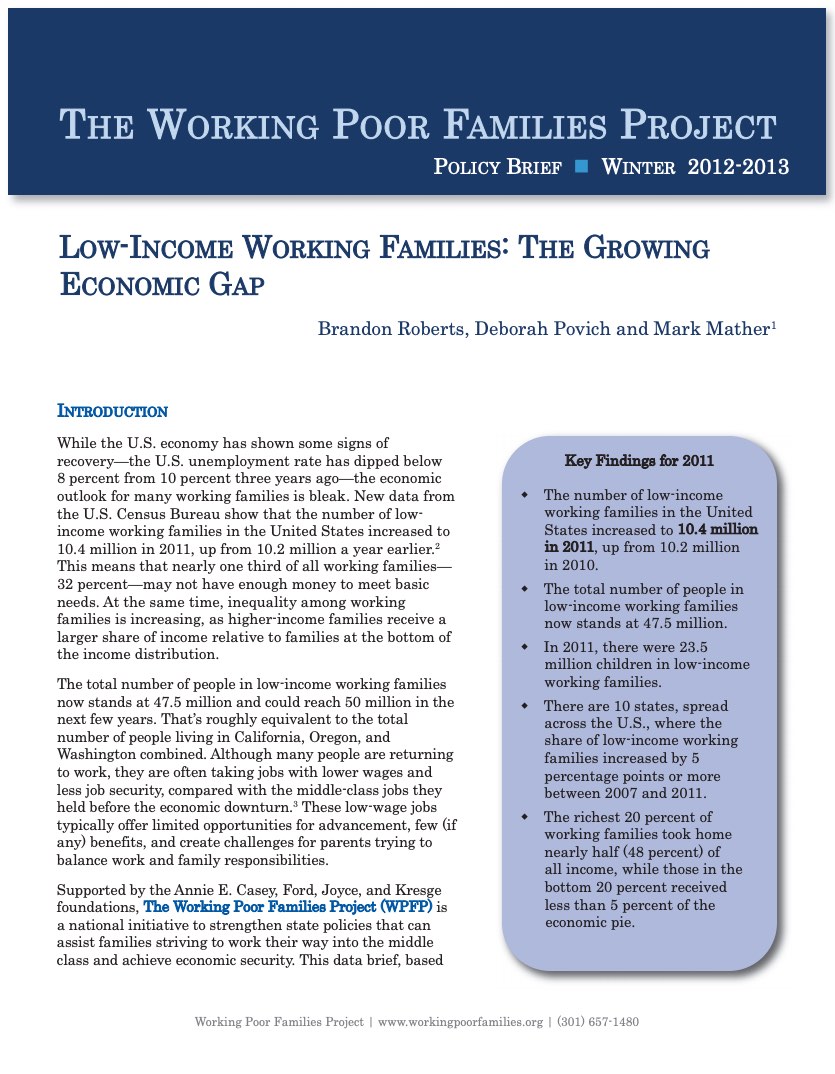Immigration Response in Suburban Washington, DC
(2009) With a lack of clear federal legislation on immigration, some municipal governments are enacting restrictionist policies to address the changing demographics of their communities.
(2009) With a lack of clear federal legislation on immigration, some municipal governments are enacting restrictionist policies to address the changing demographics of their communities.

Project: Working Poor Families Project
(2013) Economic security is out of reach for a growing number of working families in the United States, according to a new analysis of 2011 data from the U.S. Census Bureau's American Community Survey. The number of low-income working families rose from 10.2 million in 2010 to 10.4 million in 2011, representing nearly one-third of all working families.
(2002) In the United States, efforts to stop terrorism and restore economic growth have superseded the Social Security issue for the past several months. But the clock keeps ticking, and baby boomers are nearing retirement.
(2010) This year's World Health Day (April 7) focuses on the importance of urban health. Urbanization is occurring so rapidly in some parts of the world that cities are not able to keep up with increased demand for environmental, health, and educational services, not to mention the employment, housing, and transportation needs of a population that may double in size in less than 25 years.
(2010) Policies are the foundation for building high-quality, sustainable family planning programs. However, while countries aspire to enhance equity and alleviate poverty, they all too often fail to articulate clear equity-based goals for family planning policies and strategies.
(2011) Vouchers are frequently mentioned as a promising alternative finance mechanism to achieve a variety of goals in health systems and reproductive health services. Do vouchers work?
(2010) The growing use of family planning around the world gives women and couples the ability to choose the number and spacing of their children. Policymakers and family planning advocates are increasingly aware that modern contraception offers tremendous benefits through improved health and economic well-being.

How are women faring around the world—and what can the United States learn?